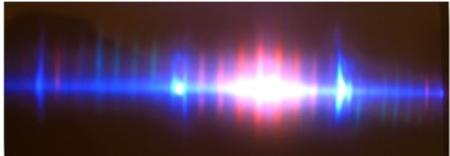Du är inte inloggad på KTH så innehållet är inte anpassat efter dina val.
Från och med den 1 juni 2025 upphör möjligheten att redigera innehåll i kurswebben och studenter slutar bli inlagda. Redan existerande material kvarstår.
Läs mer här: Kurswebbens solnedgång den första juni

The course outlines the fundamental physics underlying the generation, transmission, manipulation and detection of light in photonic components. These are the principles underpinning basic optical devices such as fibers, resonators, lasers and modulators, which nowadays have a widespread use for telecommunication, information processing and sensing in applications ranging from the internet, to medicine, environmental monitoring and aerospace.
The course is taught by Katia Gallo (gallo@kth.se) with contributions by Max Yan (miya@kth.se). It consists of lectures & seminars, a simulation lab on photonic crystals, an experimental lab on supercontinuum generation (with individual sessions arranged with the teachers), home assignments through the course and a final oral exam (11-15 January, arranged with the teachers).
The first lecture is at 3 pm on Monday, October 26th on ZOOM. The course is taught in English. You can find the full schedule o the pages of the associated MSc-level course (SK2402).
Seminars - As part of the examination, PhD students will also have to prepare a seminar lecture providing an overview on most recent research developments in photonics and deeper insights into aspects of photonic science and applications of particular relevance to their own field (task to be agreed upon with the teachers).
Literature material is provided by the teachers (Katia Gallo and Max Yan) during the course. A very good and comprehensive textbook is the following: “Fundamentals of Photonics”, by B. E. A. Saleh and M. C. Teich, Wiley series in Pure and Applied Optics, J. Wiley & Sons Publ.
To pass the course, a passing grade on each of the following parts is required: